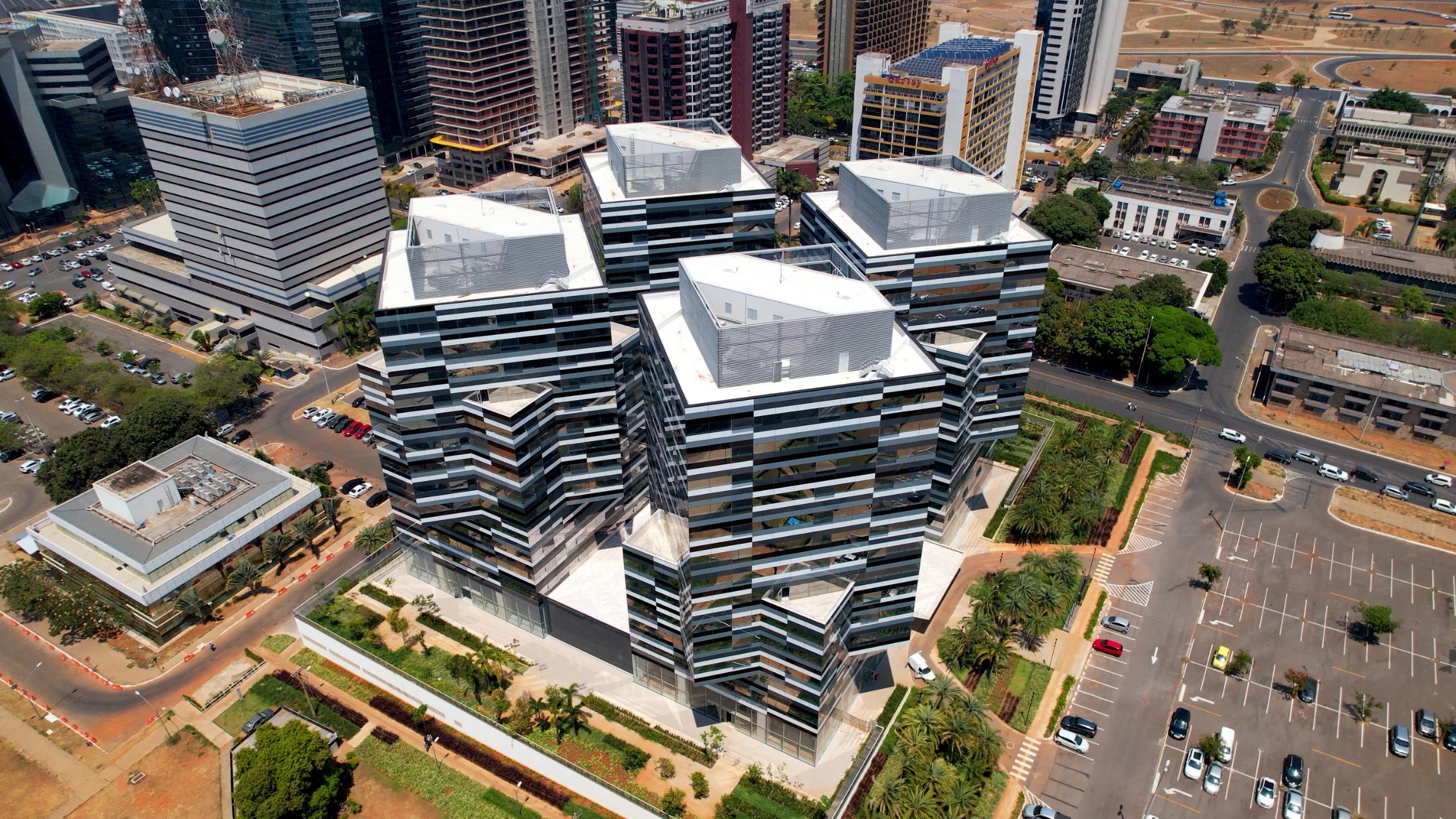Many states and towns offer financial incentives to entice and maintain a booming enterprise. However, these incentive plans will help expand your business organization and also help bring in new organizations to enhance local businesses.
Hence, maximum property owners choose government incentive plans as a beneficial program irrespective of their business types.
However, one must acquire detailed knowledge of these government incentive schemes on commercial real estate projects for better understanding. This article is a complete outline for those investors planning to avail of these incentives on their property or assets.
Ways to maximize commercial real estate government incentives
Commercial real estate professionals can avail of several incentive programs from state and central governments. You can invest your time researching the most favorable incentive for your organization.
Here are three ways you can maximize your incentives:
- First, you need to research relevant opportunities for commercial real estate incentives. Identify the incentives considering the local, federal, and state levels. Consider benefits at the mentioned level when expanding your commercial real estate portfolio.
- Next, you must draft and submit a formal RFI (request for an incentive). It will help you to discuss opportunities you should have been aware of. This RFI is repeatedly sent to different communities with your RFP (request for proposal). This way, you can receive excellent incentives to stimulate competition.
- Finally, you need to ensure your eligibility to acquire the benefits and whether they suit your business. This way, you can save your time and resources on inappropriate incentives.
A brief idea on Government incentives
Profitable business organizations contributing to local economies can avail of attractive economic incentives from state or central governments.
Besides facilitating business growth, these incentive plans also improve and attract local businesses or corporate communities. Individuals need to consider a list of things before buying commercial properties.
Business owners looking forward to balancing commercial real estate portfolio expenditures can capitalize on Government incentives irrespective of their sectors.
Individuals should consider securing commercial real estate attorneys and financing software management companies and contractors when buying commercial properties.
Though different municipalities and states offer attractive incentives for business organizations profitably contributing to the economy, commercial real estate incentives are a high priority.
It is because these incentives not only attract other businesses but also focus on improving the overall economy.
Types of incentives for commercial real estate government
-
Capital Improvement Projects (CIP)
When a property’s structure is permanently restored or changed, it is termed as a capital improvement project. For instance, the public road in your area needs utility improvements. Likewise, when the government incentivizes a business organization to improve road conditions, it is a CIP.
CIPs are public funds that a government uses as economic incentives to contribute to and develop the betterment of the country. Consequently, CIPs Can prolong the useful life of an asset, enhance the overall property value, or adapt it to new goals and destinations.
-
Real Estate Tax Abatement
The government encourages economic growth and activities by granting tax reduction programs. This is known as real estate tax abatement. Under these programs, the government reduces real estate taxes for the rise in property prices for a particular period. Moreover, this reduction is different for each jurisdiction.
Property and municipal tax abatement are common forms of real estate tax abatement. These abatement programs reduce the tax amount and sometimes eliminate property tax. However, it may include the tax paid for rehabilitation, new construction, or significant property improvements.
Property tax increases yearly by 1-3% of the property’s value. In such a scenario, tax abatement program capitalizations are a real help. However, these abatement programs are not available everywhere.
So, property owners need to check if they are eligible for tax abatement by the local government. Generally, the government offers these programs in city neighborhoods with lower demands.
-
Discretionary Incentives
Expansion projects meant to create new job opportunities or sustain substantial capital investments are eligible for discretionary incentives.
These incentives include rebates on personal income, property taxes, sales taxes, and more. Property owners can consider this abatement as above-the-line savings or cash grants.
-
Job Credits
Job credits depend on the type and number of jobs a particular project creates. These incentives include local and state-level credits, payroll tax credits, etc. In addition, the government offers lucrative incentives when the project creates more skilled and high-paying jobs.
For example, payroll tax credits are dollar-for-dollar credit that helps reduce federal tax liabilities. As a result, property owners can save money and invest the amount in expanding their business.
-
Tax Increment Financing
When developers invest in large-scale improvements, they can avail of a rebate on their expenditure under this property-tax-based program. In addition, with Tax Increment Finance (TIF), real estate improvements can capture tax benefits to bear those improvement costs.
However, the local tax authority decides the valuation of different properties for a particular improvement. So, property owners need to determine their property valuation before availing of such incentives.
TIF is applicable for properties located in underdeveloped areas that need improvement. They offer funds intending to encourage future development and stable neighborhoods.
-
Energy Efficiency Incentives
With this incentive scheme, taxpayers can claim a rebate of up to $1.80 per square foot for commercial building improvement projects like heating, cooling, lighting, etc. However, the improvements should be regarding energy-efficient projects with more than 50% energy savings.
The Biden administration’s Build Back Better plan was a great initiative to prioritize climate change as an energy-saving project. As a result, the Build Back Better Act was passed in November 2022 to bring about $555 billion in funds for combat climate change. It includes Section 179D enhancements, tax deductions for energy-efficient commercial buildings, etc.
Property owners who have opted for improvements or installations after January 2006 can avail of this tax deduction. However, there are several types of energy-efficient incentive schemes by the government. So, owners should check their eligibility and avail of the suitable abatement program.
-
Historic Preservation Tax Credit Program
Business organizations leveraging private development for historic buildings can avail of tax credits through this incentive scheme.
Moreover, most cities and towns opt to revitalize their existing properties. Resultantly, historic preservation tax credit programs have been receiving immense importance recently.
The Secretary of the Interior accredited rehabilitation of income-generating historic buildings can receive an income credit of up to 20%. Nearly 1,200 projects receive approval for this rebate by the Technical Preservation Services per year.
The total sum of this approval is almost $6 billion each year. So, owners should check if that property qualifies for historic preservation tax credits while purchasing old buildings.
-
Brownfield Incentives
Several underutilized properties contain environmental contaminants in them. So, owners can avail of a brownfield incentive when assessing and revitalizing those underutilized brownfields.
It considers the rapid population growth. Most cities focus on remediating brownfields to build commercial establishments. As a result, brownfield incentives are becoming popular in developing cities.
-
COVID-19 & Health Incentives
Another essential incentive is the Covid-19 & health incentive scheme. However, these programs are temporary and time-sensitive, considering their instability.
State and local governments have been offering pandemic-prompted incentives to taxpayers considering the recent pandemic outburst.
Some of these ensure safe and secure air filtration and circulation by including an updated HVAC system with UV components. In addition, small-scale business organizations can profit from these incentive programs.
Advantages of government incentive programs on real estate industries
Commercial real estate owners have witnessed many benefits from these government incentive programs. Here are some of the most accepted benefits of these incentive programs:
-
New Housing Programs
Considering the massive number of immigrants in the country, the government initiated new housing programs to offer tax reductions for newly built properties. As a result, property owners purchasing new houses are enjoying a considerable rebate program on their payable tax amount.
-
Affordable Housing
The ratio of increasing property and housing prices is high compared to the percentage of income increases. Hence, tax credits on housing and property prices help in buying apartments at an affordable range.
-
Climate Change Home Renovation
As mentioned, property owners remediating their existing property can avail of an incentive program against the renovation expenses. One can receive up to $5,600 from Canada Greener Homes Grant as a rebate on energy-efficient improvement projects.
So, property owners can receive maximum benefits with these incentive programs while buying or selling a new or existing property.
It helps reduce their investment costs, helping them plan better investment strategies. Payroll credits and capital improvements are some projects that can reduce the price of a commercial real estate portfolio.





